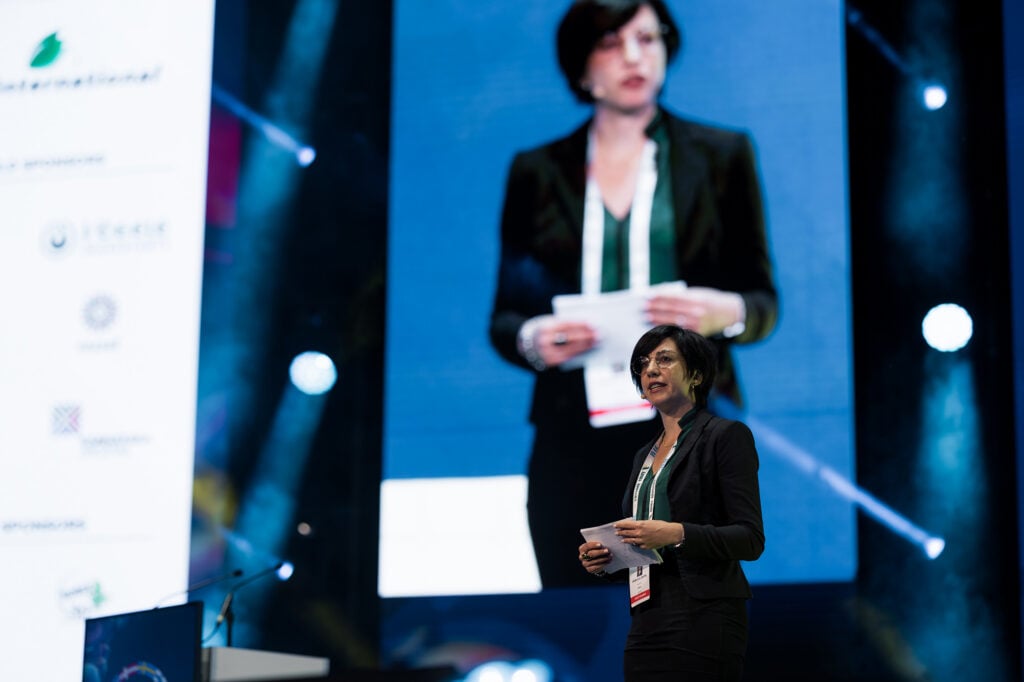NOVE’s Rebecca Lentini brings us the first IFEAT Advocacy Bulletin, keeping you up-to-date with the latest work of our Advocacy Group.
The IFEAT Advocacy Group aims to represent and advance the interests of the essential oils and natural ingredients sector before European and international institutions. Working in partnership with Charles Laroche and NOVE, IFEAT’s Brussels-based public affairs consultants with extensive expertise in EU chemicals and sustainability policy, the Group’s mission is to ensure that the voice of the industry is heard when policies and regulations are being developed.
This quarterly bulletin has the objective of informing IFEAT’s membership of the work for the Advocacy Group. This edition includes articles on the IFEAT Conference 2025, the Group’s ongoing advocacy on Omnibus VI, the Essential Use Concept and CLH developments, and the creation of an advocacy flyer designed to raise awareness of the sector’s economic, social, and cultural relevance among decision-makers.
IFEAT 2025 Göteborg Conference — Strengthening our Institutional Voice

In September 2025, IFEAT hosted its Annual Conference in Göteborg, Sweden, under the theme “The Nordic Nexus,” celebrating the innovation, sustainability, and heritage of the Nordic essential oils and aroma markets. The Advocacy Group played a leading role in incorporating the EU policy dimension to the event.

- Panel Discussion – A new EU policy landscape
The high-level panel brought together Sylvain Bintein (European Commission, DG Environment), Paul Ryan (European Chemicals Agency), Christos Vasilakos (European Parliament), and Philippe Soguel (Distillerie Bleu Provence). The discussion focused on how the new EU political cycle (2024–2029), driven by priorities of simplification, competitiveness, and innovation, is shaping upcoming legislation affecting natural substances and essential oils.
Mr Bintein presented the EU Chemical Industry Package and the Omnibus VI proposal, which aim to simplify key regulations such as the Classification, Labelling and Packaging Regulation (CLP) and the Cosmetic Products Regulation (CPR) while supporting SMEs and maintaining high safety standards. Mr Ryan explained the classification and labelling framework and provided insight into current cases relevant to the sector, including tea tree oil and p-cymene. Mr Vasilakos underlined the importance of a science-based, risk-based, and enforceable REACH revision that protects human health and the environment while sustaining European production and innovation. Finally, Mr Soguel shared the industry’s on-the-ground perspective, highlighting the need for proportionate, practical regulation to ensure the continued viability of producers and distillers across Europe.
- Workshop – The EU and Essential Oils
The workshop, “The EU & Essential Oils – A Beginner’s Guide,” provided participants with a clear overview of EU decision-making and current and upcoming legislation relevant to the sector. Led by Charles Laroche and Rebecca Lentini, the session provided an overview on the EU, its Institutions, and how it works. The session also concentrated on frameworks such as REACH, CLP, Omnibus VI, and the Essential Use Concept, describing their adoption process from a legislative perspective and how stakeholders can engage effectively in these processes.
Both Sylvain Bintein (European Commission) and Paul Ryan (ECHA) were present for the discussion, offering institutional perspectives and answering practical questions. The workshop helped bridge the gap between EU policymaking and industry practice, providing participants with a clearer understanding of how regulatory developments may impact essential oils and other natural ingredients.
Omnibus VI – Advocating for Proportionate Regulation

The Omnibus VI package, published by the European Commission in July 2025, seeks to simplify EU chemicals legislation while maintaining high safety and environmental standards. By streamlining key frameworks, such as CLP and the CPR, it introduces clearer procedures for assessing ingredients, more flexible and digital labelling rules, and reduced administrative burdens, helping make compliance more efficient without compromising protection.
For the essential oils sector, these updates are especially important to ensure that natural and complex substances are regulated in a practical and proportionate way. Together with EFEO, IFEAT has prepared two joint position papers, one for Members of the European Parliament and another for EU Member States, outlining the sector’s priorities:
- Simplification, protection, and clarity in implementation;
- Preservation of high safety standards;
- A risk-based approach that recognises the natural complexity of essential oils;
- Support for securing the plant extracts derogation beyond 2029 to keep proportionate, science-based regulation of essential oils under the CLP provision.
The Advocacy Group’s next steps include sharing these papers with policymakers and organising meetings with relevant institutional stakeholders to ensure the sector’s concerns are reflected in the legislative debate.
The Essential Use Concept – Defining What is “Essential”
As part of the EU’s Chemicals Strategy for Sustainability, the European Commission is considering the introduction of an Essential Use Concept. This principle aims to ensure that substances with hazard classifications are only allowed when their use is necessary for health, safety, or the functioning of society, and when no suitable alternatives exist. While the European Commission is still assessing how to apply this concept in the legislative context, IFEAT has taken a proactive approach by developing a dedicated White Paper on the Essentiality of Essential Oils, setting out the case for their recognition as essential within this evolving framework.
IFEAT’s advocacy focuses on demonstrating that essential oils fulfil these criteria when their broader contribution is taken into account. They play irreplaceable roles in promoting physical and mental wellbeing, food quality, sustainability, and cultural heritage. Through a dedicated White Paper, the Group argues for a function-oriented and proportionate application of this concept, one that acknowledges the real-world benefits of natural substances and prevents unintended harm to local economies and small producers.
This position will continue to guide discussions as the European Commission finalises its Chemicals Industry Package later this year.
Advocacy Flyer – Bringing our Story to Policymakers
To complement direct engagement, the Advocacy Group is in the process of developing an informative brochure designed to introduce regulators and policymakers to the essential oils sector, its origins, benefits, economic contribution, and cultural significance.
The flyer traces the historical journey of essential oils from ancient traditions to modern innovation, highlighting their roles in perfumery, food flavouring, medicine, and wellness. It also features testimonials from scientists, medical researchers, and cultural experts who speak to the unique heritage and health potential of natural extracts.
The goal is to provide decision-makers with an accessible, engaging overview of why essential oils matter, not only economically, but socially, culturally, and environmentally. The content is now being adapted into a visually engaging layout and will soon be shared across institutional and industry channels.
Looking Ahead
The work of the IFEAT Advocacy Group further confirms IFEAT as a trusted, solution-oriented voice for the essential oils industry. By combining scientific credibility, cultural storytelling, and strategic engagement, the Advocacy Group is helping shape a regulatory environment that values both safety and sustainability.
The Advocacy Bulletin will continue to provide quarterly updates on our work, helping every IFEAT member stay informed, involved, and connected to the evolving policy landscape that affects our shared future.
